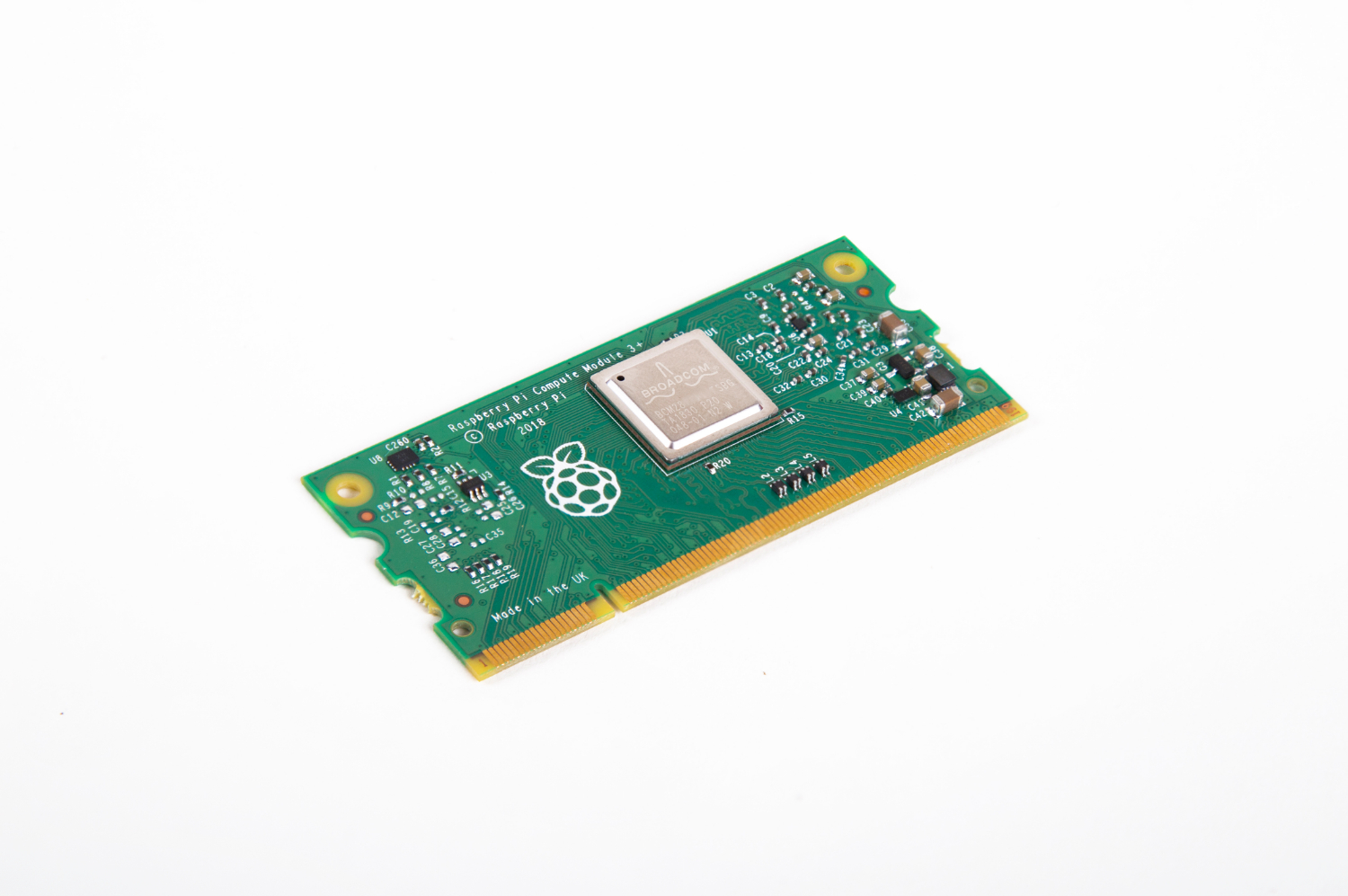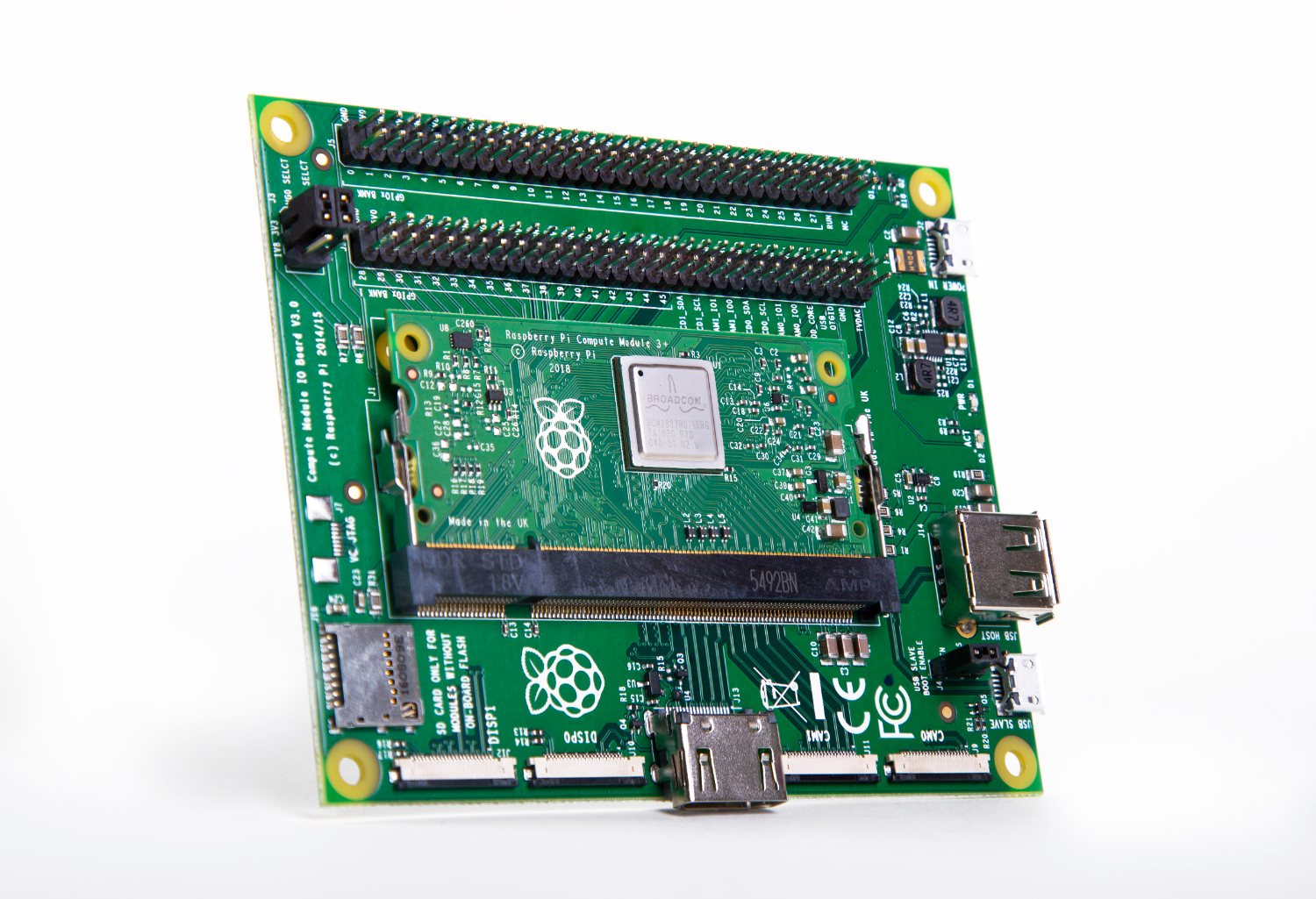Pi on a Stick: Raspberry Pi Launches SODIMM-Sized Compute Module 3+
It may not be the long-awaited Pi 4, but today the Raspberry Pi foundation is welcoming in a new member to its family, the Raspberry Pi Compute Module 3+ (CM3+). Built for industrial and enterprise clients who want to use the Pi platform with their own custom boards, the CM3+ is the size and shape of a DDR2 SODIMM module and pops directly into an industry-standard SODIMM slot too.
A regular Raspberry Pi or even a Pi Zero comes with its fair share of on-board ports and pins, but if you're a large company that's manufacturing a monitor or a set-top box, you may only want the Pi's SoC, and to have it in as small a form-factor as possible. That way you can connect only the I/O you need, even if that means doubling the standard number of Raspberry Pi pins from 40 to 80.
| Processor | Broadcomm BCM2837B0, Cortex-A53 64-bit Soc @ 1.2GHz |
| RAM | 1GB LPDDR2 |
| Storage | 0, 8, 16 or 32GB eMMC Storage |
| Size | 67.6 x 31.1 x 3.7 mm (2.7 x 1.2 x .14 inches) |
| Weight | 9 g (0.02 pounds) |
| Price | $25 - $40 U.S. |
The Pi CM3+ is just the latest of the foundation's Compute Modules, joining the CM3, CM3/Lite and the CM1. It promises faster speeds and far more storage options than its predecessors.
The Raspberry Pi CM3+ features the same BCM2837B0 processor as the latest-generation (and more consumer friendly) Pi, the Raspberry Pi 3B+. Compared to last gen's compute module, It's a slight upgrade over the BCM2837. However, the BCM2837B0 in the CM3+ will only run at 1.2 GHz (an identical speed to the CM3), as opposed to the 1.4 GHz found in its more mainstream sibling, the 3B+. That's in part down to the fact that the new compute module doesn't have the same PMIC (power management integrated circuit) found in the 3B+, meaning that unfortunately it's not possible to run it at that 1.4 GHz speed. Raspberry Pi CEO, Eben Upton, said that this decision was made so that the CM3+ will have improved thermals over last generation's CM3, allowing it to maintain better sustained performance, something far more valuable than pure brute speed in the enterprise market.
On top of that, the new CM3+ comes with a whole swathe of new storage options. You can nab yourself one of four options, an 8GB, 16GB or 32GB of eMMC storage, and there's also the CM3+ Lite with no on-board storage at all, as a more DIY, add your own storage solution. The prior-gen CM3 only came with 4GB, or in that same /lite version.
Because the Compute Modules don't come with microSD card readers like regular Pis do, you either need on-board storage, or to build storage into the I/O board you attach it to as well. The storage comes with NOOBs, the Raspbian OS installer, on it as standard, and all the modules come with 1GB of LPDDR2 RAM.
The foundation expects to manufacture the CM3+ models well into the year 2026. Pricing starts at $30 for the CM3+ 8GB, $35 for the CM3+ 16GB, and $40 for the 32GB, minus taxes and shipping, while the CM3+/Lite comes in at $25. There will also be a Raspberry Pi CM3+ developer kit that comes with an I/O board, a 32GB CM3+ and a CM3+ Lite as well. Find out more here.
Get Tom's Hardware's best news and in-depth reviews, straight to your inbox.

As Associate Editor of Tom's Hardware's prestigous British division, Zak specializes in system building, case reviews and peripherals, and has a particular penchant for liquid-cooling. He's also a lover of all things Viking/Scandinavian (thus the poor attempt at a beard).

